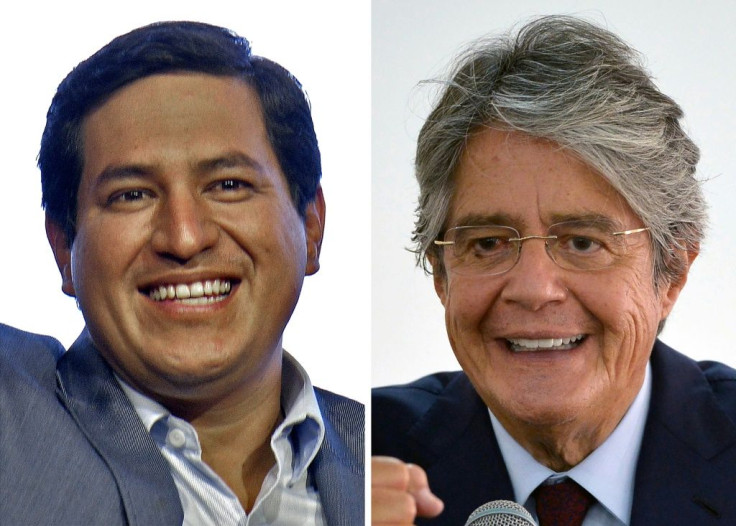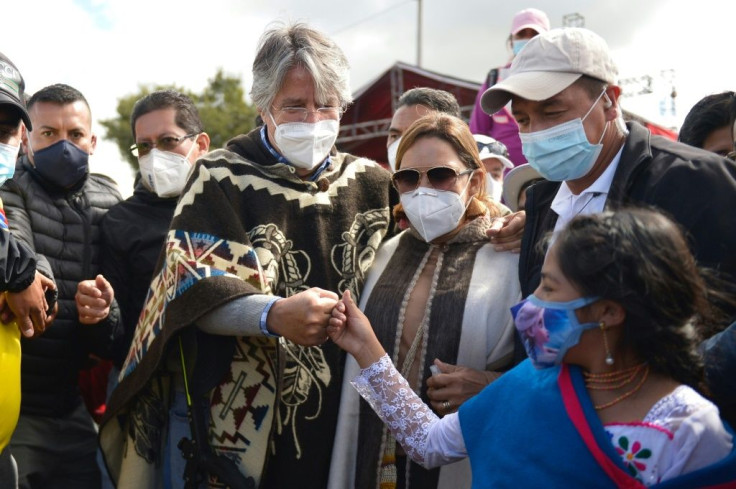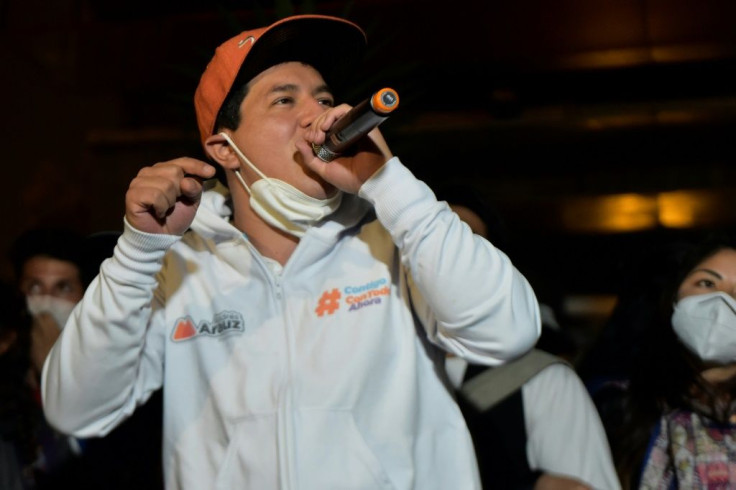Environmentalists Dismayed By Ecuador Presidential Candidates
Environmental activists will feel stuck between a rock and hard place on Sunday when forced to choose a new president.
Leftist Andres Arauz faces the right-wing Guillermo Lasso in a run-off election with both vowing to continue oil and mineral extraction, which has already devastated a sixth of Ecuador's Amazon jungle.
"Ecuador remains immersed in an extractivist policy. That is to say that both candidates believe Ecuador's future is in oil and that has nothing to do with reality," Carlos Larrea, the director of the socio-environmental unit at the Simon Bolivar University, told AFP.
"Extractivist" policy refers to plans for extracting natural resources for export.
It's left the Environment Front -- a collective of 60 ecological and human rights organizations -- feeling glum about the future government of one of the most biodiverse countries in the world.

Having evaluated their election manifestos ahead of the February 7 first round, the Environment Front gave Arauz a "worrying" score of 63.6 out of 100, while Lasso was deemed "toxic" to the natural habitat with just 36.5.
"We're starting off with candidates that are not green, which is why we're demanding compromises from them," Natalia Greene, the vice-president of the CEDENMA group of organizations defending nature, told AFP.
It could have been different, though, had Lasso not defeated socialist indigenous campaigner Yaku Perez to make it into the runoff round of voting.
Perez, a long-time campaigner against mining and for the defense of water, scored 93.4 in the Environment Front evaluation.
He's a member of Pachakutik, the political arm of Ecuador's largest indigenous movement battling the mass exploitation of natural resources in their lands.

Ecuador officially recognizes the rights of "Pacha Mama" -- an indigenous deity that means "Mother Earth" in the Quechua language -- such as her existence and the maintenance and regeneration of her cycles of life.
The Front's position is not to boycott the election but rather to "contribute to an informed vote by illuminating (the candidates') environmental commitments."
Both Arauz and Lasso have made some such commitments but it's been slim pickings in Ecuador's dollarized economy that depends on oil exports and industrial level mineral extraction, which began in 2019.

Should he be elected, Lasso, a 65-year-old former banker, has pledged to reduce the use of fossil fuels, "stop" deforestation and launch projects to generate electricity using renewable sources.
Arauz, a 36-year-old economist bidding to be Ecuador's youngest president since the restoration of democracy in 1979, is also planning to switch to clean energy instead of fossil fuels for generating electricity and for the public transport system.
He wants to slow down the expansion of oil exploration in the Amazon jungle, from where Ecuador extracts 500,000 barrels a day, three-quarters of which is exported.
But whatever the two candidates have said, environmentalists demand "commitments to nature" that are real and achievable, said Greene.
The Front has proposed a 10-point plan to the two candidates including measures to mitigate the noxious effects of the extraction of natural resources, regenerating affected ecosystems and ensuring the rights of nature.
"Given the extraction of non-renewable resources is inconsistent with sustainable conservation and management of natural areas, but especially fragile ecosystems, these activities must be immediately banned in these ecosystems," said the Front's plan.
Larrea believes Ecuador "needs a huge turnaround that cannot be improvised in its long-term development strategy, strengthening what stands out the most worldwide, which is its biodiversity, it's cultural heritage and its tourism potential."
The biodiversity situation "is very serious given we've lost more or less a sixth of the Amazon jungle due to oil extraction."
Larrea believes the country "needs to diversify its economy," which is in crisis due to the low price of crude and the effects of the pandemic.
"The potential of mining in no way has the capacity to replace oil, apart from the huge environmental impact," he added.
The current government hopes that mineral extraction will continue to grow and reach four percent of GDP in 2021, having been worth just 1.6 percent in 2019.
Ecuador's Amazon jungle is rich in oil and minerals and covers around half of the country.
© Copyright AFP {{Year}}. All rights reserved.





















